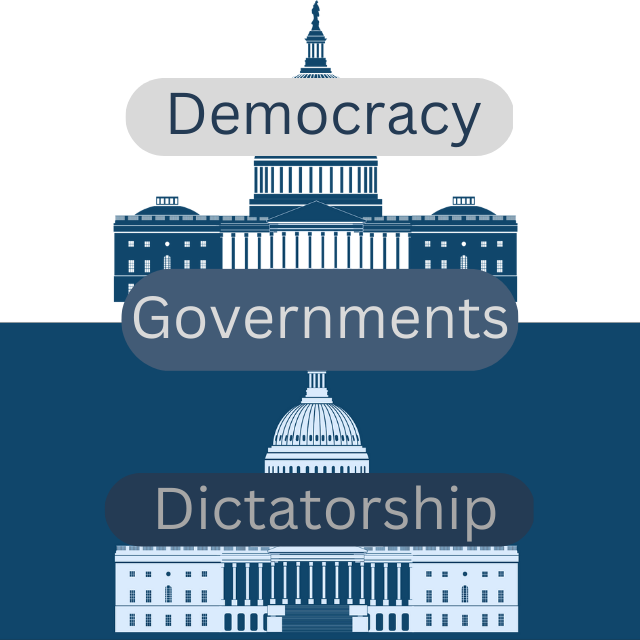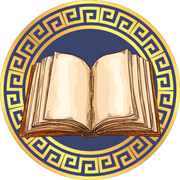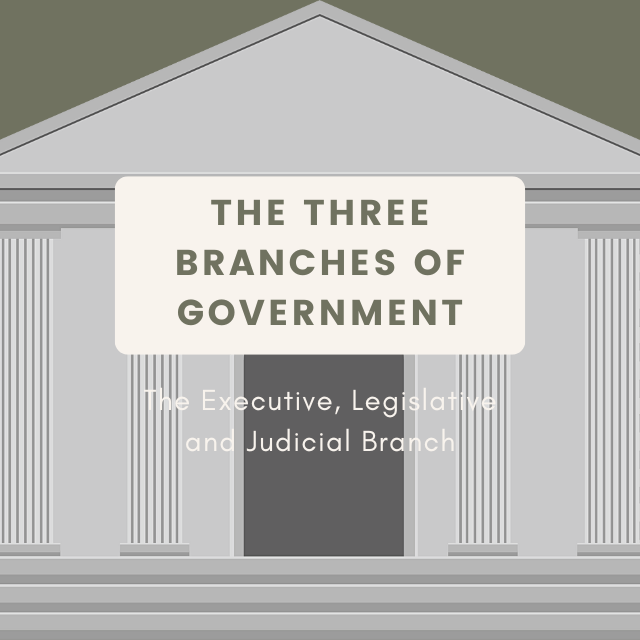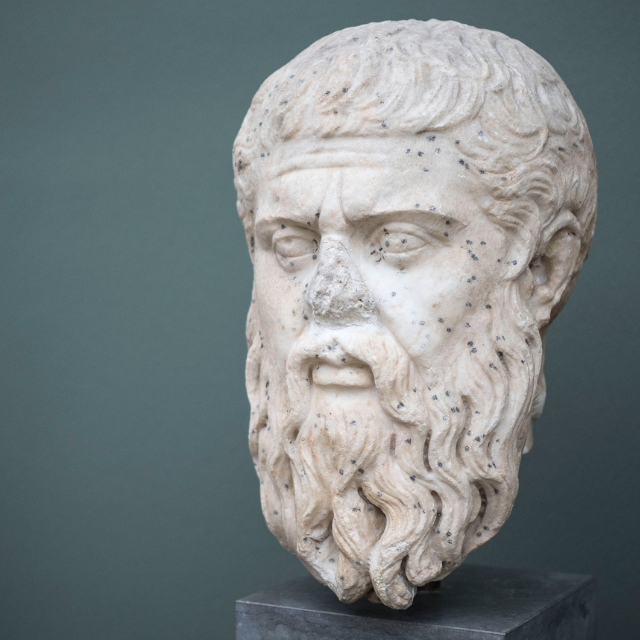How do Dictatorships and Democracies Differ?
What is Democracy and Dictatorship? How do they govern themselves? And How do they differ? All of this questions and more are all answered in this article.

GLOSSARY
What are Key Supporters?
It refers to an entity, be it an individual or a group, that you need support from in order to either gain or maintain a position of power.
These are people or groups who have enourmouse influence in the people's civic life, the economy, and other important factors.
They are essential supporters, without them the president or ruler have no power.
What is a Coalition size?
Coalition size refers to the number of key-supporters you need to win over to either obtain or maintain the desired position.
What do I mean by Sources of Revenue?
There are a variety of types of revenues, but for the sake of simplicity, we are going to be categorizing them into two categories, whether it is a Dependent Revenue or an Independent Revenue.
Independent Revenue is revenue that are not dependent on the country's citizens. This includes but not limited to natural resources such as oil and uranium, foreign aid, etc.
Dependent Revenue is revenue that is dependent on the country's citizens. This includes but not limited to: Income Taxes, Land Tax, every other tax and more.
The Difference between Dictatorships and Democracies
| Type of Government | Dictatorship | Democracy |
|---|---|---|
| Definition | A form of government where one person or group holds absolute power. | A form of government where decisions are made by majority vote. |
| Sources of Revenue | Consists mostly of independent revenue | Consists mostly of dependent revenue |
| Education System | Citizens do not have academic freedom | Citizens have academic freedom |
| Coalition Size | Power is divided only to a few | Power is divided to many |
| Governance | Aspiring dictators battle for whoever can provide the most valuable private rewards | Aspiring leaders in democracies battle for whoever can provide the "best" policy ideas |
| Livelihood of the citizens | Infrastructures and education are at the bare minimum, healthcare non-existent | Citizens have access to media and education, healthcare, and possess the most freedom than any other government systems |
Despite differing in the ways they govern, the only distinction between the two forms of government is their coalition size and their sources of revenue.
Coalition size
Because of their enormous coalition size, democracies are unlikely to transition into a dictatorship or into another form of autocracy.
This is because the larger the coalition size is, the more people you have to please in order to obtain and stay in power.
Bribery won't work because revenue is limited, unless of course the current president or someone else with political power lessens the coalition size, by disrupting or stealing the influence of several key-supporters.
When the coalition size in a democracy is low enough, it is only then bribery is a viable option, because despite the fact that revenue is limited, there are only a few people that the president or aspiring ruler have to convince.
If the government in a democracy is successful in lowerings its coalition size, it will gradually transition into an autocratic government or an Autocratic Democracy.
Sources of Revenue
One of the main reasons why democracies are unlikely to transition into autocracies is because the government is reliant to the public.
This is why resource-rich countries are more likely to be autocracies, because their revenue is independent from the public.
Just to clarify, when I said resource-rich countries, I meant countries that have resources that is valued high, resources like oil and uranium.
Further Details
Dictatorship
Definition of Dictatorship
What is a Dictatorship?
A dictatorship is a type of Government, led by an individual who has absolute control over the country.
A dictator's directives are not limited to the livelihood of the people, only to the loyalty of his comrades.
A Dictatorship's source of income
The leader of a dictatorship primary gains his revenue through sources that are independent from the people.
The following are the primary streams of revenue of a dictatorship:
- Foreign aid;
- Natural Resources;
- And high tax.
Instead of aiding in public expenses, in dictatorships, foreign aid is treated as another form of revenue for the office holders.
Dictatorship's Education System
The goal for dictatorships, regarding their Education System, is to turn the youth into workers and soldiers that are loyal to the regime.
In dictatorships, citizens don't have academic freedom, because the government censors unwanted Ideologies and restrict topics that are deemed off-limits in order to stop the youth having revolutionary thoughts.
Access to education may also be limited in some dictatorships, due to inadequate funding, lack of resources, but mostly because of lack of incentive.
Educational opportunity should not be so extensive as to equip ordinary folks, the interchangeable, to question government authority.- From the Dictator's Handbook
Dictatorship's Coalition Size
Money and Resources are limited, so there is merit in keeping the number of key supporters small.
The smaller the number of key supporters, the smaller the amount of people that is needed to buy off loyalty and the higher the rewards for the leader and his essential supporters.
In a dictatorship, power is divided only to a few, for exactly these reasons.
How Dictatorships Govern themselves
Aspiring dictators battle for whoever can provide the most valuable of private rewards.
The dictator gains the loyalty of his men by either giving private rewards or promise future riches.
Benevolent dictators, that has the desire to help and provide aid to his citizens, tend to be quickly replaced by their own supporters for another aspiring dictator who is willing to provide more valuable private rewards to them.
The leader of a dictatorship will also use threats to key supporters, effectively making them loyal not only through rewards, but also through fear.
The dictator could use threats such as, but not limited to:
- The use of violence;
- Threaten their livelihood, economically;
- Dicrediting and undermining their influence;
- and lastly, replacing them with another one of his loyal followers.
Coup d'état and counter revolutions happens less frequently in democracies than in dictatorships, because most of their revenue comes from the people's wages via taxation.
Revolutions of any kind will disrupt and cause turmoil to most citizens effectively destroying the most valuable source of revenue the country has.
Dictatorships however, rely in independent revenues, so a successful revolution or a grab of power is always a threat a dictator has to look out for.
During a coup d'état, the ruling dictator will kill off his own and the previous ruler's men that are unnecessary to stay in power, to keep the coalition small.
The Livelihood of the Citizens in a Dictatorship
Sick, starving, ignorant people are unlikely to revolt.- From the Dictator's Handbook
In a dictatorship, the livelihood of citizens tends to be worse off than in Democracies, this is because any funds that are given to the public, are funds that the rivals of the leader can promise to give to the key supporters, as long as they switch sides.
Of course, there are still necessary infrastructures, machines to be worked on and borders to protect, so the education and livelihood of the citizens must be somewhat decent, but only at the bare minimum.
Because citizens living in dictatorships that are educated enough and healthy enough can revolt against the government if they harbor hostility against them.
Democracy
Definition of Democracies
What is a Democracy?
A democracy is a type of Government that is led by an individual who is elected by the country's citizens.
A democratic ruler's directives are limited not only by key supporters, but also the people's interest.
Democracy's source of income
A Democracy receives its revenue mostly through the people's wages via taxes, so most of its revenue is dependent.
It is then within the Democratic ruler's interest to enact programs and policies that makes the public more productive, more educated and long-living to ensure the maximum extraction of an individual's value.
Thus, roads are made, hospitals and public schools built, all for maximizing revenue.
Of course, benevolent Leaders who do this out of the goodness of their hearts exist, but keep in mind that the Democratic Government stand to gain something, they don't necessarily do this solely out of kindness or fairness.
Democracy's Education System
In democracies, there tends to be a greater variety of academic subjects, programs, and disciplines available in public schools, because the political competition in democracies is a battle over who has the better policy ideas.
Politicians who promise to enact polices that allows a variety of education to be studied and learned are more likely to be elected than politicians who do not.
Democracy's Coalition Size
Leaders from Democracies rely on many key supporters to stay in power, any attempt on making the coalition small will anger most of the supporters as well as the public.
The more displease the public is, the less productive and rebellious they will be, this then not only reduces wealth for the country, but also gives political rivals the chance to take the Democratic leader's seat in office.
This is one of the reasons why it is very hard for a Democracy to transition into a dictatorship.
How Democracies Govern themselves
Aspiring leaders in democracies battle for whoever can preach and enact the "best" policy ideas that favors the majority or to those groups that has the influence on who gets to be elected.
The following are the entities who has influence regarding who gets to be elected president in a democracy:
- The citizens;
- Political parties
- Campaign donors;
There is also a system that is commonly used for electing presidents in democracies called bloc voting, it is a form of voting where groups of voters or political parties vote together in order to increase their influence.
The Livelihood of the Citizens in a Democracy
Citizens living in democracies usually have access to media and education, access to healthcare, and possess infrastructures of higher quality as well as the most freedom than any other government systems.
The following are the types of freedoms democracies commonly have:
- Freedom of speech - refers to the right to express one's thoughts and ideas without the fear of being persecuted.
- Freedom of the press - refers to the ability to access and publish information without government interference.
- Freedom to vote - refers to the right to participate in the decision on who should get elected in a government official position via voting.
- Right to a fair trial - refers to the right of having a just and fair trial if one is accused of a crime.
- Right to privacy - refers to the protection of one's personal information and freedom from unreasonable surveillance.
The quality of life in democracies tend to be greater than any other government systems, because the aspiring leader needs to gain the favor of those that have influence regarding who gets to be elected president, which are influential groups and the citizens themselves.
CONCLUSION
- A democracy is a type of Government that is led by an individual who is elected by the country's people; A dictatorship is a type of Government that is led by an individual who has absolute control over the country.
- Democracies rely on the public for their income, while dictatorships rely on income independent from the public.
- Democracies usually have academic freedom because it is within the interest of the majority, in dictatorships however, government officials have no interest of the wants of the public, so their education system focuses more on cultivating workers and soldiers that are loyal to their regime.
- Democracies has a larger coalition size than dictatorships; The leader of a democracy needs a greater amount of support from influential groups and individuals to maintain and gain power, unlike dictators who minimizes the need of such groups and individuals at a minimum, through force and corruption.
- Democracies based their policies and decisions on whatever the majority wants, while dictatorships enact polices and make decisions based on providing private rewards to necessary and influential supporters.
- The livelihood of citizens is more satisfactory in democracies than in dictatorships, because the government officials in democracies rely on the public for political power, while dictatorships does not.
Copyright ©2023 by Marshall Vulta




Comments ()